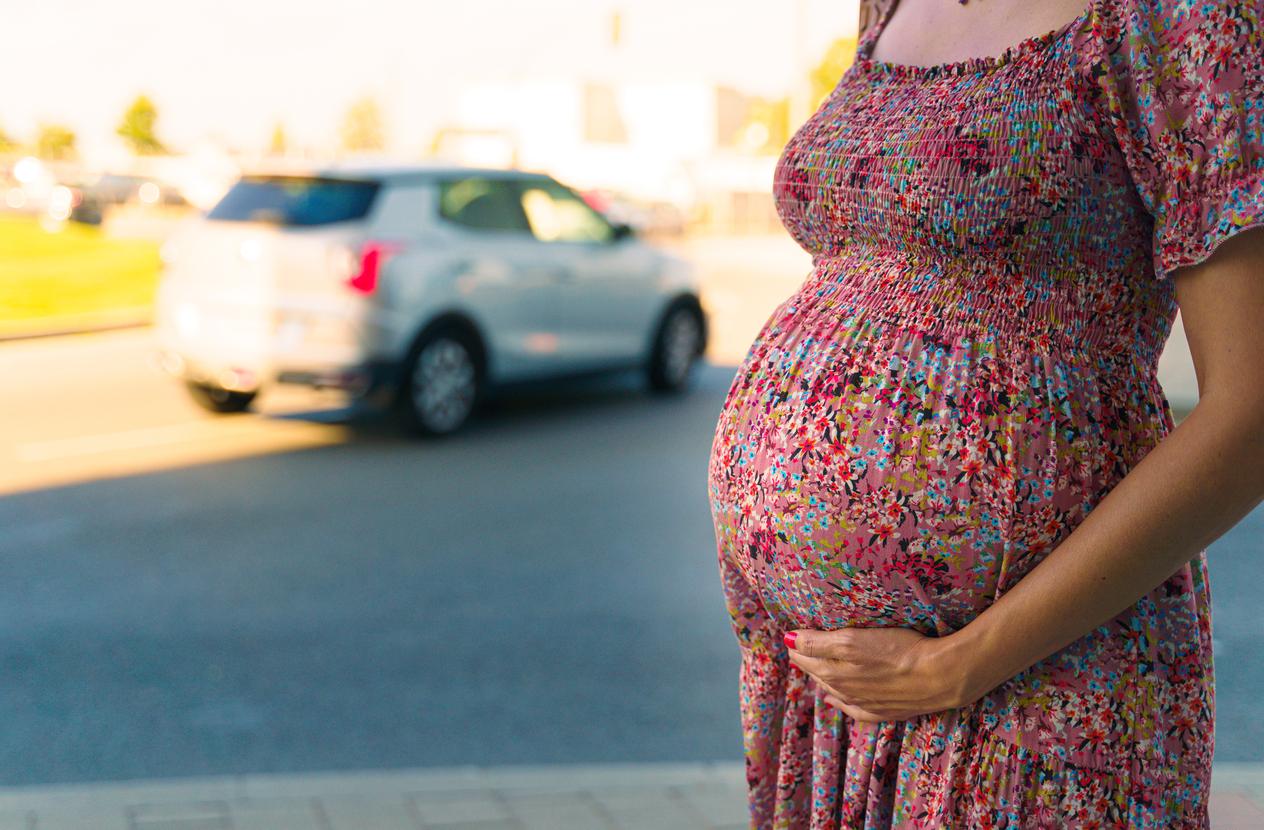Toddlers whose mothers were exposed to high levels of air pollution during pregnancy have lower cognitive outcomes.

- The authors took into account the socioeconomic status of the mothers, the frequency of breastfeeding per day, the time of delivery, the body mass index before pregnancy, the weight and the sex of the infant.
- Exposure to air pollution can impact baby’s gut microbiota and promote inflammation.
What if moving to the countryside could help future mothers give birth to smarter children? This was suggested by researchers from the University of Colorado (USA) in a study published in the journal Environmental Health. This research is one of the first to assess the link between prenatal exposure to air pollution and early childhood brain development.
Assessing mothers’ exposure to fine particles during pregnancy
To carry out this work, the scientists recruited 161 healthy mother-child pairs residing in California. Participants were asked to provide information about their place of residence. Next, the team used an air quality monitoring system to calculate the mothers’ exposure to pollutants from road traffic, industrial facilities or smoke from fires during pregnancy. “Exposure assessments included nitrogen dioxide (NO2) and particulate matter with a diameter of less than 2.5 and 10 microns (PM2.5 and PM10)”, the authors said. When the children reached the age of 2, they took a series of developmental tests, assessing their cognitive, motor and language skills.
Pregnancy: timing of exposure is important
The researchers found that children exposed before birth to more fine particles had low scores on cognitive tests. According to the results, exposures that occurred in mid to late pregnancy were found to be particularly detrimental to neurodevelopment.
“The brain develops differently at different stages of pregnancy, and when you have a disruption at a critical time, it can affect the trajectory of that development,” said Zachariah Morgan, author of the study, in a statement. He explained that between the middle and end of pregnancy, brain circuits form to develop sensory, communication and motor systems.
How to protect yourself from air pollution during pregnancy?
The authors recommend that pregnant women avoid physical activity outdoors on days of high pollution, invest in an air filtration system inside the house, open windows to cook and to avoid exposure to passive smoking. “This is just one of the many things expectant parents need to know to give their child the best possible start,” concluded Tanya L. Alderete, co-author of the work.















